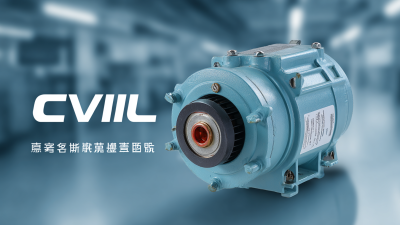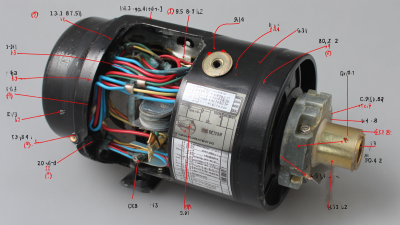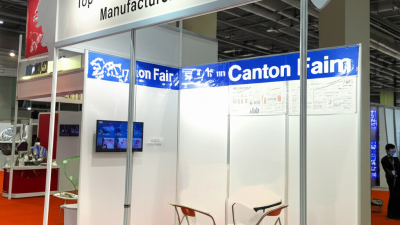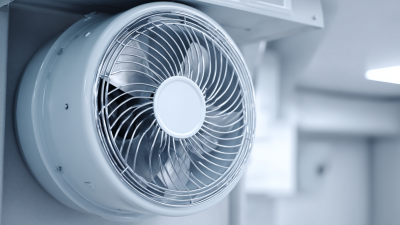




In the realm of home climate control, the AC blower motor plays a crucial role that often goes unnoticed. This essential component is responsible for circulating air through the heating and cooling systems, ensuring that every corner of your home maintains a comfortable temperature. Understanding the significance of the AC blower motor can help homeowners appreciate its functionality and the impact it has on energy efficiency and indoor air quality. A well-functioning blower motor not only enhances the effectiveness of your HVAC system but also contributes to a more consistent climate within your living space. Regular maintenance and timely replacements of this vital part can prevent costly repairs and improve the overall performance of your home’s climate control systems. As we delve deeper into the nuances of the AC blower motor, you'll discover how integral it is to achieving the perfect indoor environment.
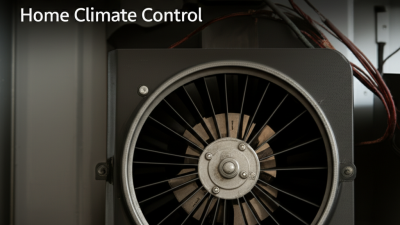
The AC blower motor plays a crucial role in maintaining home cooling efficiency, acting as the heart of the HVAC system. This motor is responsible for circulating conditioned air throughout the home, ensuring that every room receives adequate cooling. According to the U.S. Department of Energy, up to 30% of energy consumed by air conditioning systems can be attributed to inefficiencies in airflow. An efficient blower motor ensures optimal airflow, which is essential for a balanced temperature and comfortable living environment.
Notably, the performance of the blower motor can greatly influence the overall efficiency of the air conditioning system. A study published by the American Society of Heating, Refrigerating and Air-Conditioning Engineers (ASHRAE) found that properly maintaining and optimizing blower motors can improve system efficiency by as much as 15%. Regular maintenance, including cleaning and replacing filters, can prevent the motor from overworking and significantly enhance energy savings. Investing in high-efficiency blower motors can lead to substantial reductions in energy costs, making them an integral component of any home climate control strategy.
The AC blower motor plays a crucial role in maintaining the comfort of your home by circulating cooled air throughout the living spaces. However, like any mechanical component, it can encounter issues that necessitate maintenance or replacement. Recognizing the signs that your blower motor is underperforming is essential for ensuring your air conditioning system operates efficiently.
One of the most common indicators that your AC blower motor needs attention is unusual noise. If you hear grinding, squealing, or banging sounds when the system is running, it could signal deteriorating bearings or loose components. Additionally, reduced airflow is a strong sign of trouble; if you notice that your vents are blowing warm or weak air, the blower motor may be struggling to function properly.
Lastly, frequent cycling on and off, or an inability to turn on at all, can also indicate an issue with the motor, suggesting that it may require repair or replacement to restore optimal performance.
The blower motor is a crucial component in your HVAC system, playing a significant role in regulating your home’s climate. Issues with the blower motor can lead to inadequate heating or cooling, significantly affecting your comfort. According to the U.S. Department of Energy, a well-functioning blower motor can improve system efficiency by 20-30%, underscoring the importance of regular maintenance and troubleshooting.
To troubleshoot common blower motor issues, start by checking the power supply to the motor. Ensure the circuit breaker is not tripped and that the thermostat is functioning correctly. If the motor doesn’t start, inspect for any loose connections or damaged wires. Often, a simple repair can bring your system back to life without the need for a costly replacement.
Tips: Regularly clean the blower motor and surrounding areas to prevent dust and debris buildup, which can hinder performance. Additionally, investing in a multimeter can help you quickly diagnose electrical issues without calling in a professional, saving you time and money. If you notice unusual sounds or decreased airflow, don’t hesitate to inspect the system, as these symptoms could indicate serious underlying problems.
Maintaining your AC blower motor is crucial for enhancing your air conditioning system’s performance. According to the American Society of Heating, Refrigerating and Air-Conditioning Engineers (ASHRAE), efficient airflow can improve overall system efficiency by up to 25%. A well-maintained blower motor ensures your system circulates air effectively, maintaining comfortable temperatures in your home while reducing energy consumption. Neglecting blower motor upkeep can lead to higher energy bills and diminished cooling capacity, as a dirty or malfunctioning motor struggles to push air through the ductwork effectively.
To care for your AC blower motor, regularly check and clean the components. Dust and debris can accumulate over time, causing strain on the motor and leading to premature failure. A study by the U.S. Department of Energy found that replacing or cleaning air filters can increase the blower motor's efficiency, contributing to a 5% energy savings. Additionally, scheduling annual professional maintenance can help identify any potential issues early on, ensuring your AC system operates optimally throughout the hot months. Simple steps such as these can drastically improve your system's performance and longevity.
The blower motor is a crucial component in your home’s heating, ventilation, and air conditioning (HVAC) system, significantly influencing indoor air quality. It regulates the circulation of air throughout your living spaces, moving conditioned air from the HVAC unit into each room. A well-functioning blower motor ensures that temperature and humidity levels remain consistent, preventing the stagnation of air that can lead to the proliferation of allergens and pollutants. Inefficient performance or malfunctioning motors can result in unequal airflow, causing hot or cold spots that may encourage mold growth and lead to an accumulation of dust and allergens.
Moreover, the performance of the blower motor affects the overall efficiency of the HVAC system. When the motor struggles to operate, it can lead to increased energy consumption and higher utility bills. Additionally, poor airflow due to a faulty blower motor can hinder the system’s ability to filter airborne particles effectively, reducing the quality of air you breathe indoors. Regular maintenance and timely repairs of the blower motor not only enhance comfort but also promote a healthier living environment by ensuring that the air circulating in your home is clean and properly conditioned.
| Parameter | Description | Impact on Indoor Air Quality | Recommended Maintenance |
|---|---|---|---|
| Airflow Rate | Measurement of the volume of air the blower motor moves. | Directly affects ventilation; insufficient airflow can lead to stagnant air and increased pollutants. | Regular filter changes and checking ducts for obstructions. |
| Motor Efficiency | How effectively the blower motor converts electrical energy into airflow. | Higher efficiency leads to reduced energy consumption and better air quality control. | Annual professional inspections and lubricating motor components. |
| Noise Level | Sound produced by the blower motor during operation. | Excessive noise may indicate issues and can lead to discomfort in living space. | Inspect for loose components and signs of wear; replace if noisy. |
| Temperature Regulation | The ability of the blower motor to maintain consistent temperatures. | Poor regulation can lead to uneven heating/cooling and discomfort. | Calibrate thermostat settings and ensure proper sealing of ducts. |
